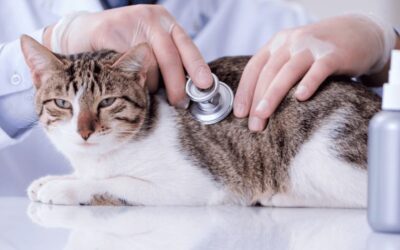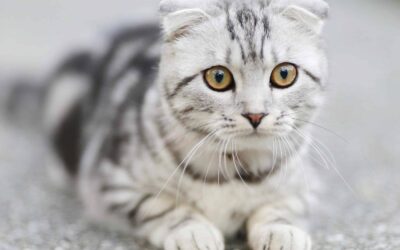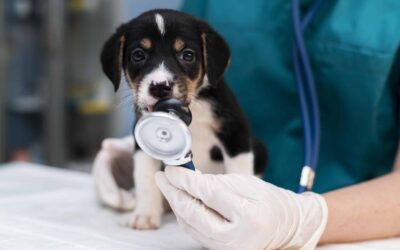Hyperthyroidism In Cats: Symptoms & Treatment Options
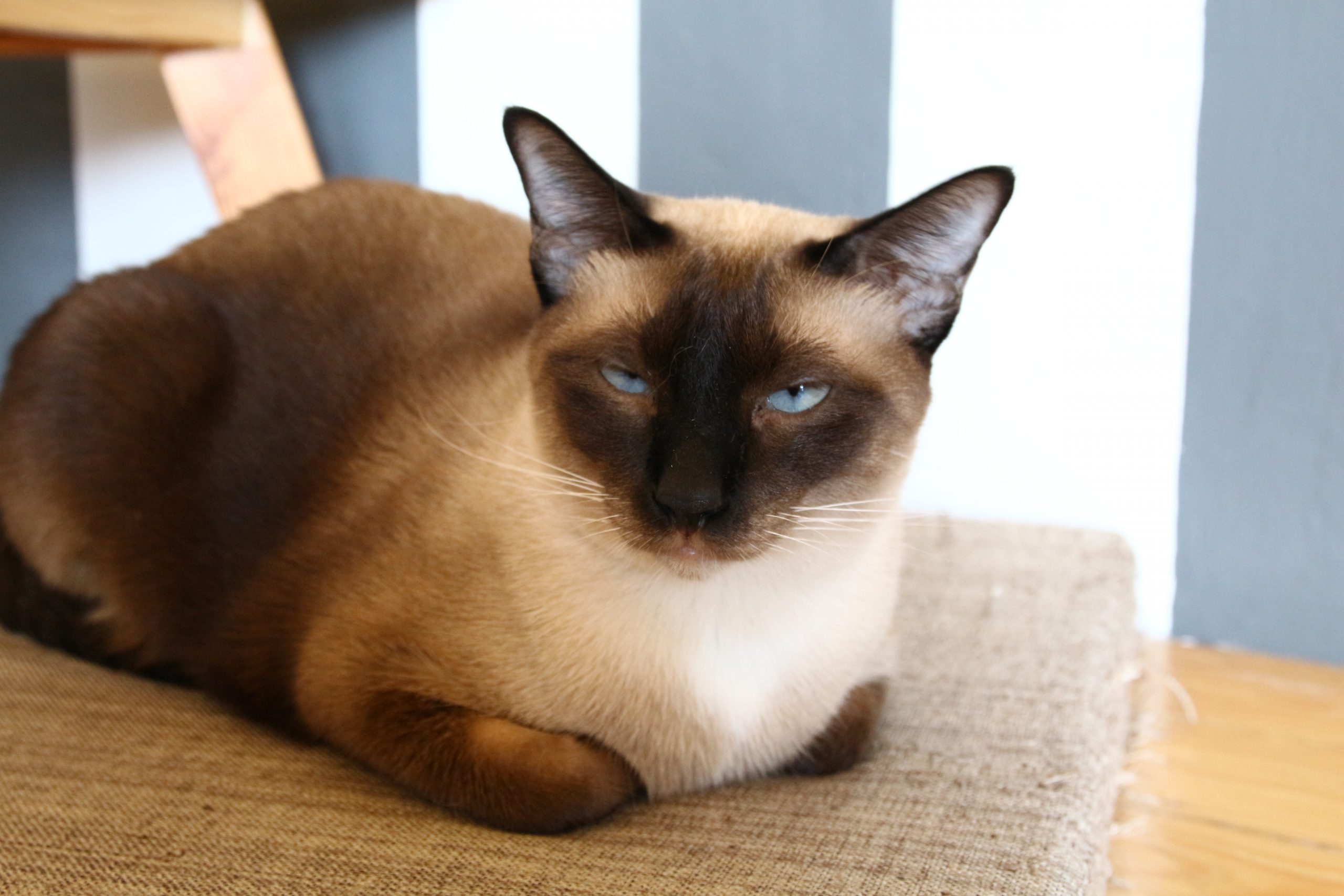
Hyperthyroidism is a common endocrine disorder that affects cats. It causes an overactive thyroid gland, which is located in the neck and plays a crucial role in regulating a cat’s metabolism. When this gland becomes overactive, it produces an excess amount of thyroid hormone, leading to various symptoms and complications.
Understanding the Thyroid Gland in Cats
The thyroid gland produces and releases hormones that regulate various bodily functions, including metabolism, heart rate, and temperature control. In cats with hyperthyroidism, the thyroid gland becomes enlarged and produces excessive amounts of thyroid hormone, disrupting the body’s normal balance.
Causes and Risk Factors of Hyperthyroidism in Cats
The exact cause of hyperthyroidism in cats is still unknown, but several risk factors are associated with the development of this condition. Age is a significant factor, with most cats being diagnosed between 10 and 14. Additionally, certain breeds, such as Siamese and Himalayans, are more predisposed to developing hyperthyroidism. Environmental factors, such as exposure to flame retardant chemicals, have also been linked to the increased incidence of this disease.
Recognizing the Symptoms of Hyperthyroidism in Cats
Hyperthyroidism can manifest itself in cats through various symptoms. Some common signs to look out for include weight loss despite an increased appetite, increased thirst and urination, hyperactivity, restlessness, vomiting, and diarrhea. Cats with hyperthyroidism often have a poor coat condition and may exhibit increased vocalization, excessive grooming, and aggression. If you notice any of these symptoms in your cat, it is important to seek veterinary care for a proper diagnosis and treatment.
Diagnosing Hyperthyroidism in Cats
Diagnosing hyperthyroidism in cats involves a thorough veterinary examination and specific tests to confirm the condition. The veterinarian will perform a physical examination, feeling the cat’s neck for any abnormalities or enlargement of the thyroid gland. Blood tests will be conducted to measure the levels of thyroid hormones in the cat’s system. Elevated levels of thyroid hormones, specifically T4, are indicative of hyperthyroidism. In some cases, additional diagnostic techniques such as thyroid imaging or scintigraphy may be necessary to confirm the diagnosis.
Treatment Options for Hyperthyroidism in Cats
Once a diagnosis of hyperthyroidism is confirmed, there are several treatment options available to manage the condition effectively. These options include medication, surgery, and radioactive iodine therapy.
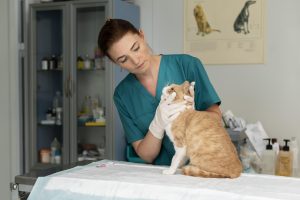
Medication for Managing Hyperthyroidism in Cats
One common treatment option for hyperthyroidism in cats is medication. Anti-thyroid drugs, such as methimazole, work by inhibiting the production of thyroid hormones. These medications can be given orally or as a gel applied to the skin. Regular monitoring of thyroid hormone levels is necessary to ensure the medication’s effectiveness.
Surgical Options for Treating Hyperthyroidism in Cats
Another treatment option for hyperthyroidism is surgical removal of the thyroid gland, also known as a thyroidectomy. This procedure involves the complete removal of the affected thyroid gland. However, it is important to note that surgery may not be suitable for all cats, especially those with concurrent health issues or advanced age.
Radioactive Iodine Therapy for Hyperthyroidism in Cats
Radioactive iodine therapy is a highly effective treatment option for hyperthyroidism in cats. This therapy involves injecting a radioactive substance into the cat’s body, which selectively destroys the overactive thyroid tissue while leaving the healthy tissue unharmed. It is a noninvasive procedure that typically requires a short hospital stay for the cat.
Diet and Lifestyle Changes for Cats with Hyperthyroidism
In addition to medical treatments, making certain dietary and lifestyle changes can help manage cat hyperthyroidism. Feeding a balanced and nutritious diet that is low in iodine can help regulate thyroid function. It is important to consult a veterinarian to determine the most suitable diet for a cat with hyperthyroidism. Environmental modifications, such as providing a calm and stress-free environment, can also contribute to the overall well-being of a cat with hyperthyroidism.
Monitoring and Follow-Up Care for Cats with Hyperthyroidism
Regular monitoring and follow-up care are essential for cats with hyperthyroidism. This includes periodic blood tests to evaluate the effectiveness of the treatment and adjust medication dosages if necessary. Monitoring the cat’s overall health, including weight, appetite, and behavior, is crucial in ensuring the condition is well-managed and any potential complications are detected early.
Prevention and Early Detection of Hyperthyroidism in Cats
While the exact cause of hyperthyroidism is unknown, certain measures can be taken to potentially prevent or detect the condition early. Regular veterinary check-ups, especially for senior cats, can help identify any early signs of hyperthyroidism. Maintaining a healthy lifestyle, including a balanced diet and regular exercise, can also contribute to the overall well-being of a cat’s thyroid function.
Can Odie Pet Insurance Provide Coverage for Such an Investment?
Depending on the specific policy, pet insurance can cover the diagnosis, treatment, and management of hyperthyroidism in cats.
Reimbursement
This method is the most common for pet insurance companies. You pay out of pocket for the veterinarian bill, and then the insurance company reimburses you for what’s covered under the insurance plan. The steps look like this.
- You pay the vet bill after your cat’s visit.
- You fill out the pet insurance claim form.
- Submit the claim form and other required documentation to the insurer.
- After the claim is approved, you will be reimbursed for eligible expenses.
What Does Odie Pet Insurance Cover?
Pet insurance covers various veterinary expenses, providing financial protection and peace of mind for pet owners. Here are the details of the coverage options offered by Odie Pet Insurance:
Illness & Injury Plan
The Illness & Injury Plan is an all-inclusive insurance plan designed to cover a wide range of medical needs for your pet. This plan includes comprehensive coverage for various illnesses, injuries, and veterinary services. Some of the covered items include:
- Veterinary exams and consultations
- Diagnostics (e.g., X-rays, lab tests)
- Prescribed medications
- Surgeries and hospitalization
- Rehabilitation, acupuncture, or chiropractic treatments
- Medically necessary supplies
The Wellness Plan
The Wellness Plan is a monthly membership that focuses on preventive care and covers routine veterinary services.
- Provides reimbursements for routine care items such as wellness visits (exams and vaccines), testing and parasite prevention, dental cleanings and at-home dental care, vitamins, supplements, and more
- Through Odie’s partnership with Petivity, a leader in smart pet products and proactive care, Wellness Plan members can also receive reimbursements for Petivity devices and health kits, as well as eligible Purina food and supplements.
- Total reimbursement up to $700 per year.

